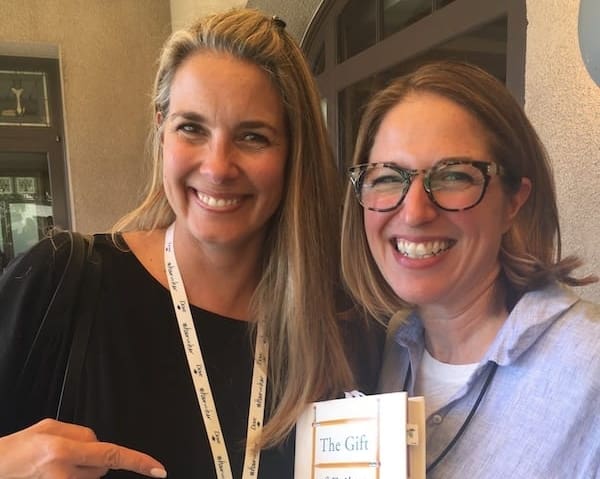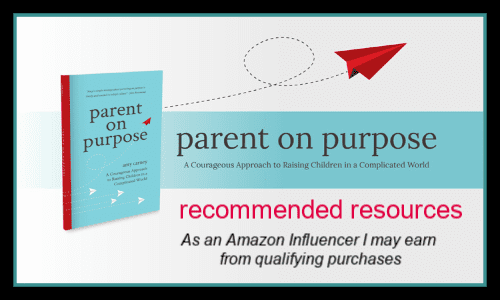We know that strength of character is built by learning through setbacks, mistakes, and miscalculations, so why is it so difficult to allow our kids to experience failure today?
We can thank our child’s school online parent portal app for starters.
As a loving and helpful parent, we open the grade portal to check in on our child’s academic progress, only to see that our son forgot to turn in his homework yesterday, and our daughter bombed her latest math quiz. How are we supposed to react now that this information is in our hands?
Are we really to look at it, shrug our shoulders and go about our normal existence without bringing this knowledge to our child’s attention?
That will never happen because we care about our kids. We care about how our students are doing. And even though we know that our child learning through their mistakes is healthy, we cannot help but communicate with our child, our disappointment in their choices and expect them to do better.
How are we supposed to let our child fail when this portal gives us timely information to help our students better succeed?
The online parent grade portal was never made as a tool to help us embrace failure, but instead, its presence in our lives and on our phones heightens our fear of our child messing up. (We are naturally drawn to the red lines telling us our kids aren’t up to par.)
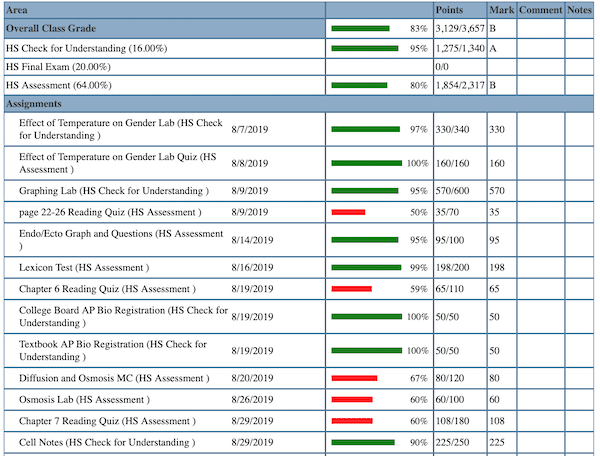
We can also thank Life360 or the other tracking apps we have on our phones.
Of course, a loving parent would put a tracking app on their child’s phone to keep tabs on their loved one while they’re out navigating the world without us. With it, we’re even able to see how fast our new driver is going since he now takes himself to soccer practice. We set up notifications that tell us when our dear offspring arrives at the field and when they depart as well.
And all the while, we can’t help checking the app throughout the day creating anxiety and stress when we see that our child is not where they’re supposed to be or that they’re driving 9 miles over the speed limit, knowing that they could get pulled over at any moment.
With such ‘helpful’ not helpful parental tools at our fingertips, how are we, as loving parents, to embrace failure as a gift when we can so quickly help our loved one succeed at every turn instead?
We can start by removing these ‘helpful’ apps from our phones and reading the book The Gift of Failure by Jessica Lahey, where the author helps parents learn to step back and embrace their children’s setbacks along with their success.
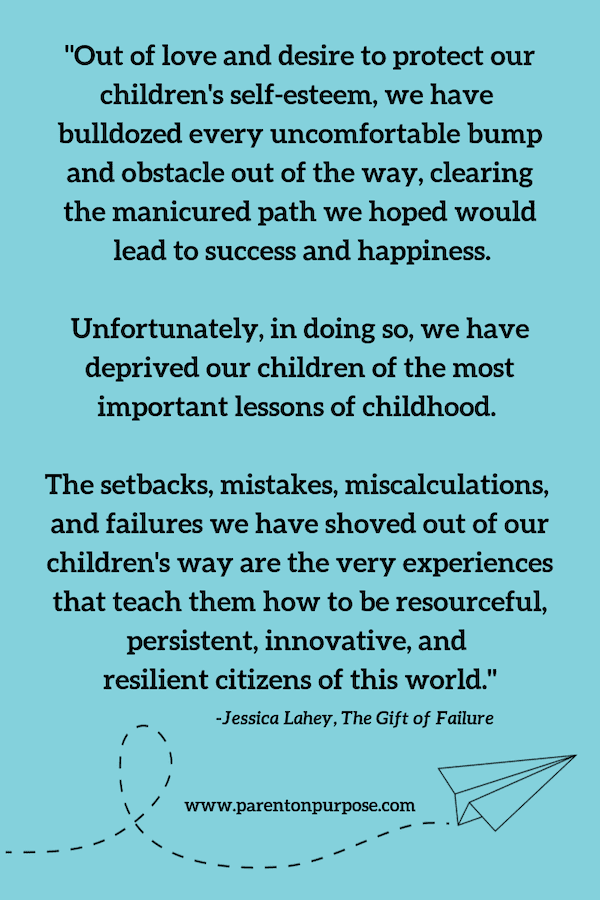
Parents want to raise resourceful, persistent, innovative, and resilient citizens yet, culture has us confused about how to do that, and Lahey’s book is the perfect aide to help us get back on track.
Thanks to modern parenting styles and technology, we are launching kids into adulthood without the proper skills and mindset they need to be successful. If we continue to parent in an overbearing manner, our son or daughter may become ill-equipped to deal with ordinary life experiences or cope with everyday disappointments.
We must decide to step back and allow our children to struggle more because it’s what’s best for them. We must choose to remove the ‘helpful’ apps from our phones and let our sons and daughters fail and make mistakes. Lahey helps us shift our mindset to welcome the errors our child will make as a regular part of growing up.
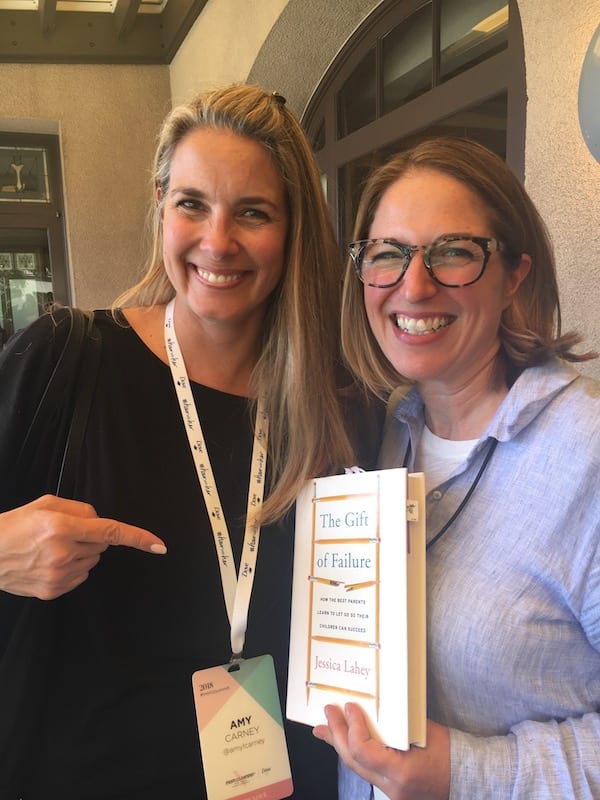
In The Gift of Failure, Lahey teaches us how to purposely lead our children into discomfort, strengthening their character and resolve. She guides us to understand how to be interested, yet not intrusive. Lahey helps us grasp why we must allow our children chances to step up, try, fail, and try again until they get it right. She also teaches us how to enable our children to survive their failures, earn their triumphs, and expect them to contribute to the family household.
The Gift of Failure has targeted advice for handling homework, report cards, social dynamics, and sports. The book helps parents understand why they need to step back and embrace their children’s setbacks along with their successes so they can thrive and grow into independent, confident adults.

